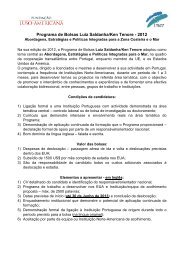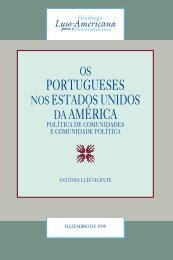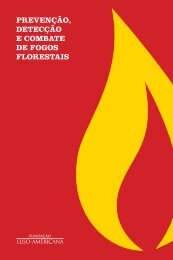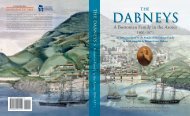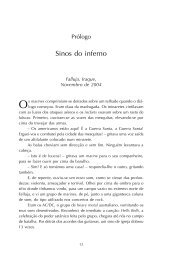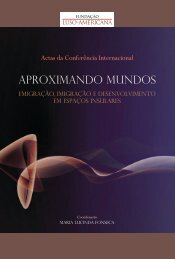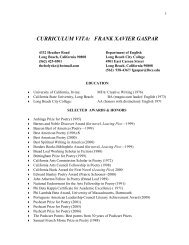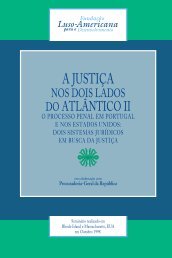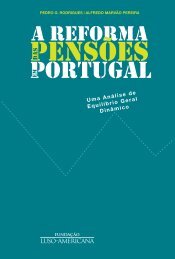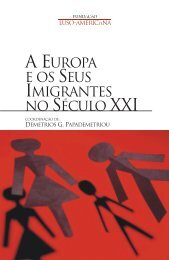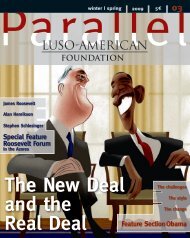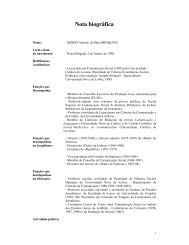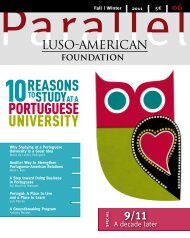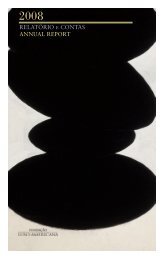Create successful ePaper yourself
Turn your PDF publications into a flip-book with our unique Google optimized e-Paper software.
9 See Helene<br />
Zuber, “The<br />
Quiet<br />
Revolution:<br />
Morocco’s King<br />
Aims to Build a<br />
Modern Islamic<br />
Democracy,” Der<br />
Spiegel, 2/2006<br />
(SPIEGELnet in<br />
English).<br />
10 An example is<br />
provided by the<br />
careful way in<br />
which the<br />
government<br />
sanctioned a<br />
non-violent but<br />
well-publicized<br />
demonstration<br />
over the<br />
“cartoon” issue<br />
in Rabat in<br />
February, 2006.<br />
patterns <strong>of</strong> patronage based on clan and regional loyalties, are<br />
being replaced by a new patronage based on money – a form<br />
<strong>of</strong> modernization, no doubt, but also a development with uncertain<br />
consequences for political stability. That said, the links<br />
between prosperity, economic equality and stability are complicated<br />
and uncertain. In the Maghreb, Morocco has traditionally<br />
had the worst distribution <strong>of</strong> income, Algeria with its<br />
Arab socialist model and energy revenues, the best, with Tunisia<br />
falling somewhere in between. Yet, Algeria has been the least<br />
stable society, and Morocco has managed to avoid serious instability<br />
over the last decade. Experience suggests that leadership<br />
and political culture may be more important determinants <strong>of</strong><br />
longer-term stability than economic policy per se.<br />
Reform, Political Islam, and Stability<br />
In more or less direct fashion, all North African societies confront<br />
a looming question <strong>of</strong> “participation” in politics, against<br />
a backdrop <strong>of</strong> internal and external pressures for change. In<br />
general, secular opposition movements are weak, and Islamist<br />
movements, both legal and illegal, are a potent if <strong>of</strong>ten “recessed”<br />
source <strong>of</strong> political power – and the most likely alternative to<br />
existing regimes. This challenge takes different forms across the<br />
region, but in no case is it absent from the political equation.<br />
In Morocco, where religion is woven into the fabric <strong>of</strong> the<br />
monarchy and the political legitimacy <strong>of</strong> the regime, the most<br />
potent forces <strong>of</strong> opposition still come from the Islamist quarter<br />
9 . The government has carefully managed the role <strong>of</strong> religion<br />
in politics, and in the wake <strong>of</strong> the 2003 Casablanca bombings<br />
has actively suppressed extremist networks 10 . Action to<br />
contain the Islamist threat has been accompanied by significant<br />
movement on the human rights front, including the estab-<br />
[20]



